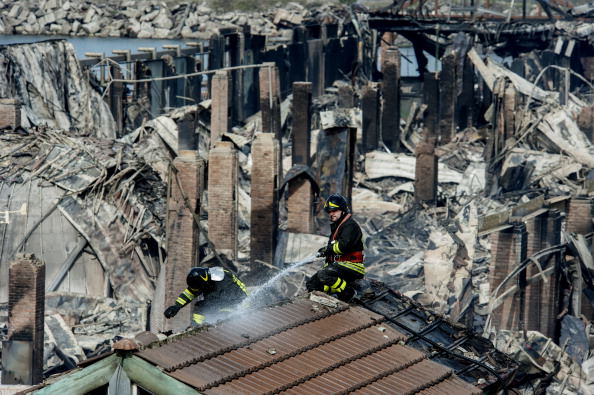Just north of Naples, a smoldering ruin is all that remains of the museum called the City of Science. It was deliberately set on fire during the night between March 4 and 5, and it is not hard to read the message behind its destruction.
The City of Science was created in 1996 as an ingenious way to reuse the gigantic Bagnoli steel plant, one of so many relics of Italy’s postwar plan to redeem itself through industry. Most of those industries have moved on, leaving unemployment, rotting structures, and environmental degradation in their wake. With a planetarium, exhibitions about classical physics, experiments about nature and daily life, and a program devoted to studying the future, the City of Science brought new ideas, new visitors, and new jobs to a blighted zone along one of the world’s most beautiful coastlines. By its very dedication to the future, the project declared its faith in a city too well known for its degraded present of crime and poverty. The museum was in perfect keeping with a once-glorious capital that is still glorious in many respects, with a new mayor, Luigi de Magistris, whose agenda has been to fight the city’s entrenched corruption and its chief corrupting agent, the local criminal organization known as the Camorra.
No doubt this campaign was part of what inspired the senseless attack on the museum. But the burning of the City of Science serves notice not just to Naples. Its message of brutality and despair is addressed to all of Italy. The Camorra’s message could just as easily have been sent by the Mafia, the ’Ndrangheta, or the Sacra Corona Unita, the local variants of a single large-scale criminal reality. As Italians sort out their stalemated election results, the country’s lack of a government is only too apparent. According to one recent government estimate, corruption now accounts for $60 billion of the annual budget, while another study finds that more than 10 percent of the GDP is produced by organized crime. From North to South, well-placed organizations are happily doing business in their own way, by their own methods. The most dangerous prospect for Italy right now is not ending up like Greece; it’s ending up like Mexico.


